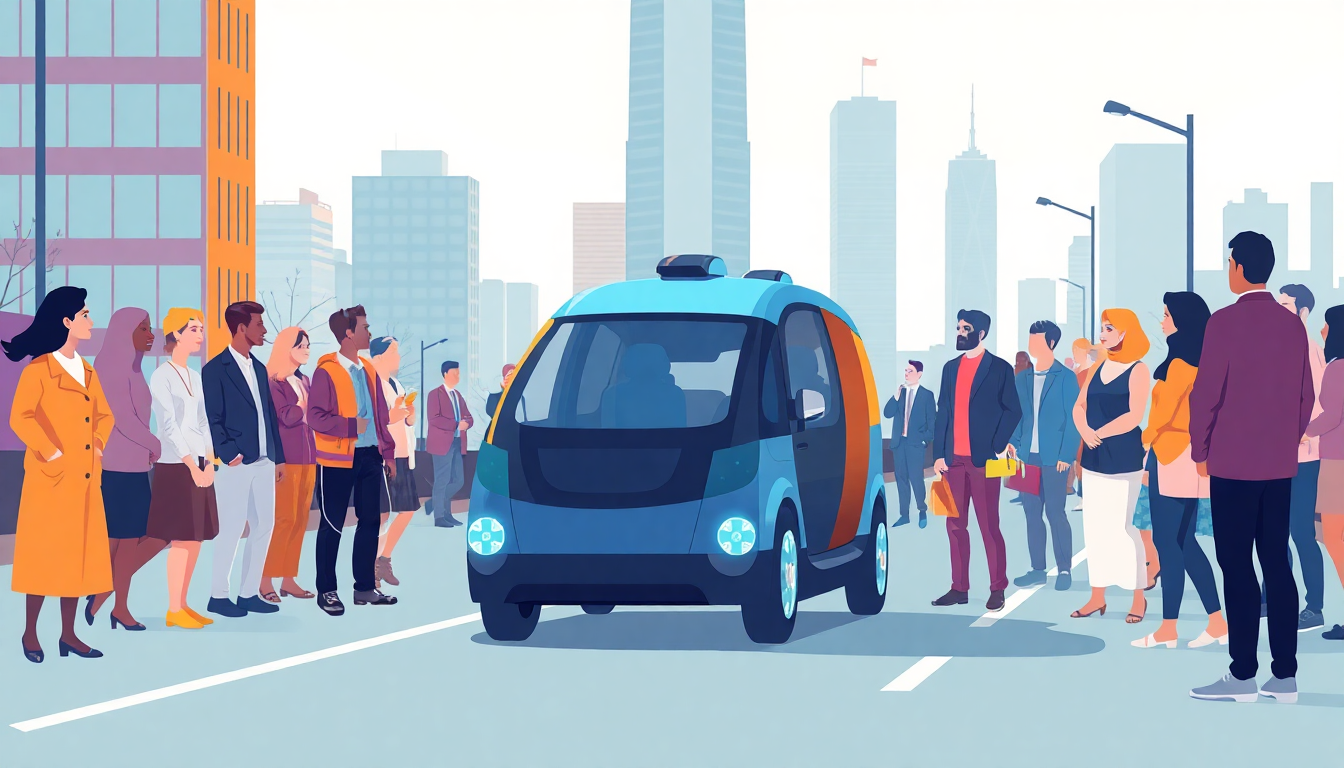The Dawn of Autonomous Vehicles: A Technological Revolution
In the not-too-distant future, we might all look back at an era when driving our cars was a mundane task. Autonomous vehicles (AVs) are on the brink of changing that, promising a world where cars drive themselves, eliminating human errors and providing unprecedented levels of convenience. However, as we stand at the cusp of this technological revolution, it’s crucial to delve into the ethical implications surrounding artificial intelligence (AI) in AVs.
The Marvel and Peril of AI Decision-Making
At the heart of every autonomous vehicle lies a complex AI system designed to make split-second decisions. While the benefits of eliminating human error—a leading cause of traffic accidents—are obvious, the ethical dilemmas posed by AI are far from straightforward.
1. **Trolley Problem in Real Life:** Imagine an AV is faced with an unavoidable accident scenario. Should it swerve to avoid hitting a group of pedestrians, even if it means risking its passengers’ safety?
2. **Bias in AI:** Ensuring that the AI’s decision-making processes are free from bias is crucial. What happens if an AV favors certain groups over others in critical situations?
3. **Transparency:** How transparent should AV companies be about the decision-making algorithms used in their vehicles?
- Fact: Over 1.35 million people die in road crashes each year, making autonomous vehicles a vital technological advancement.
- Interesting Statistic: According to the World Health Organization, human error is a factor in more than 90% of road accidents.
Anecdotes from the Frontline
The development of autonomous vehicles isn’t without its share of fascinating stories and ethical dilemmas. Consider the case of Google’s self-driving car, which was involved in an accident in 2016 while attempting to navigate around sandbags on a street in Mountain View, California. Though no one was injured, the incident raised eyebrows about the vehicle’s decision-making capabilities.
“It’s one thing to avoid a stationary object, but quite another to interpret dynamic situations and intentions, something humans are naturally more adept at.”
Who Bears the Responsibility?
When a human driver gets into an accident, determining responsibility typically involves insurance companies and law enforcement. With autonomous vehicles, the picture is more complicated. If an AV makes a wrong decision leading to an accident, who is liable? The programmer, the manufacturer, or the person who bought the car?
These questions aren’t just theoretical. In 2018, an Uber autonomous vehicle struck and killed a pedestrian in Tempe, Arizona. Both the human safety driver and Uber faced scrutiny. This tragic incident underscored the urgent need for clear guidelines and regulations.
- Governments around the world are grappling with how to regulate AVs.
- Insurance companies are also in the process of devising new policies to cover AV-related incidents.
Building Ethical AI: The Road Ahead
How can we ensure that the AI guiding autonomous vehicles makes ethically sound decisions? There are several avenues being explored:
1. **Multidisciplinary Approach:** Integrating insights from ethicists, psychologists, and legal experts into the engineering process.
2. **Global Collaboration:** Developing universally acceptable ethical guidelines through international cooperation.
3. **Continuous Learning:** Ensuring that AI systems are updated to incorporate new ethical guidelines as societal norms evolve.
Human Trust: A Barrier to Overcome
One of the most significant challenges in the adoption of autonomous vehicles is public trust. People are naturally wary of turning over control to a machine, especially when it concerns their safety.
Consider this: In a 2020 survey, only 34% of respondents said they would feel comfortable riding in a fully autonomous vehicle. This statistic highlights the gap between our technological capabilities and public sentiment.
“Understanding that AI isn’t infallible but can refine its decision-making capabilities over time is essential to winning over skeptics.”
The Ethical Highway: A Collective Journey
As we speed towards a future where autonomous vehicles become mainstream, it’s imperative that we address the ethical challenges head-on. Only through a collaborative and transparent approach can we ensure that the benefits of AVs are realized while minimizing potential drawbacks.
This journey isn’t just about technology; it’s about aligning that technology with humanity’s core values, ensuring that every AI decision made on our roads works towards making them safer and more equitable for everyone.
